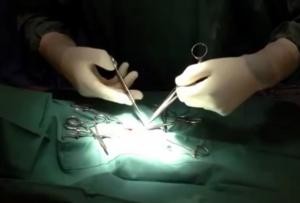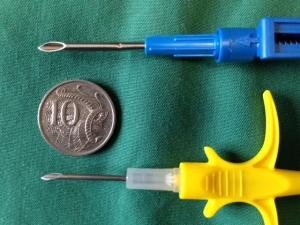Choosing A Cat
Cats can be the perfect pet for the busier person who spends much of the day away from home. They are affectionate but can also be very self-sufficient in feeding and toileting and are clean, quiet pets.
There are many fantastic and dedicated cat rescue shelters for finding a kitty needing a home. We recommend starting with a visit to the Animal Welfare League at Wingfield. If you are considering a pure-breed, visit our showcase of the cat breeds available in Adelaide.
Although cats are more independent than dogs, they should still get affection and time with their owners every day. This is just one of the Ten Common Mistakes Cat Owners Make. Please take a look!
Feline road trauma still accounts for too many deaths and serious injuries. With a bit of planning, cats can easily be kept away from danger inside the house or with access to an external cat run. Read our guide to keeping cats happy indoors.
If you do let them outside, getting them inside before dark is essential.
Nutrition and Dental Care
See our detailed diet advice at Feeding kittens and cats and How to keep cats teeth clean.
Toilet Training
The good news is that cats are almost toilet trained from the moment they come home, as long as you do the right thing. A cat will look for a suitable toilet place and reuse it if it suits them. Is your cat not using the litter tray? Read the possible causes and solutions here.
Here’s what they want:
- A digging material as similar to dry sand or dirt is the best start. With time you can train a cat to use your preferred cat litter
- Minimal faecal and urine contamination but with a faint odour of past toileting (i.e. clean but not disinfected)
- A deep litter and a large tray
- A private and easily accessible place, often close by when a kitten. Open tops are best to avoid ammonia buildup
- At least one litter tray per cat
Read why male cats with toileting problems may be in big trouble without help.
Vaccination
Kittens are vaccinated 2 or 3 times against calicivirus and herpesvirus and feline enteritis starting at 6 to 8 weeks of age. This what is called the ‘F3’ vaccine.
Feline immunodeficiency virus vaccination is recommended at the same time for cats with outdoor access. This is usually a second vaccine given at the same time. FIV is spread via the bite of another cat.
Kittens should have very limited and supervised access to outdoors until vaccinations have been completed. You can read all about ‘cat flu’ here.
Adult cats then require a single annual F3 and FIV booster at the time of their health check. View cat vaccination prices here.
Flea Treatment
In cats, we recommend continuous flea control. See our complete parasite control advice at Flea control products for cats and How to get rid of fleas on cats.
Intestinal Worms
Intestinal worms are quite common and hard to detect. Kittens are most vulnerable to sickness and should be wormed every 2 weeks from 4 weeks of age up to 12 weeks of age, and then monthly to 6 months of age. Cats over 6 months of age can be wormed the same as adults every 3 months for life.
Most worming treatments are tablets or pastes but there is also a treatment which can be applied to the back of the neck if your cat is hard to dose.
You can learn more about the worms of cats here.
Heartworm Prevention
Read our experiences with heartworm disease in Adelaide cats here. We don’t insist on prevention like we do in dogs, but it’s certainly recommended.
Our preferred flea control for cats is Revolution, which also protects against heartworm.
Desexing

All male and female cats not planned to breed should be desexed. Otherwise, females will have up to three litters per season and males will fight and roam. Tomcats are probably the source of most new infections with FIV and for spreading the cat flu viruses.
Even indoor cats are best desexed. Males will be tormented by other tomcats outside and females will come into heat for up to six months of the year. The ideal age to desex both male and female cats is 5 to 6 months.
Desexing prices can be found here. Before you book in your cat for desexing, read our guides to What to do before a cat is desexed and How to look after cats after surgery.
Anaesthesia
We are proud of our anaesthetic record. Read our article on Anaesthetic Safety in Cats for more information.
Microchips

Read our full article on microchips here.
The widespread use of microchips in our area has made unclaimed cats almost a thing of the past. Microchipping can be performed in most cats without an anaesthetic but is often done at the same time as desexing.
The picture shows the new mini chips next to the older standard microchip. The cost is the same and inserting them causes less discomfort. It is a permanent and safe identification method at a minimal cost.
Prices for microchip insertion including lifetime registration are surprisingly low.
Holding & Transporting Cats
Read our blog on holding cats about the correct way to hold cats. If you are having trouble giving your cat tablets, please watch our video made especially for you!
A guide to travelling with cats is found in our knowledge base.
You might also like: How To Become A Cat Person

